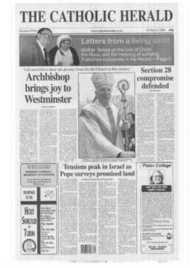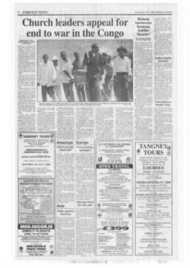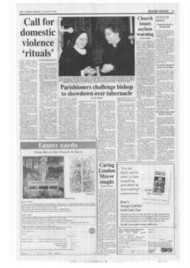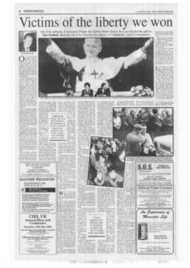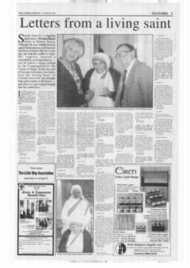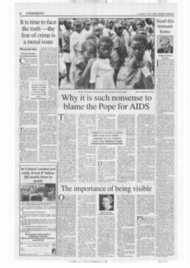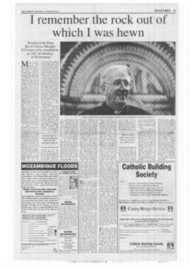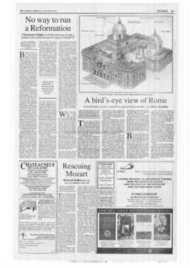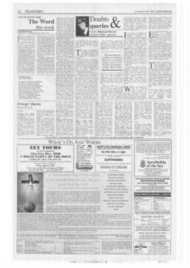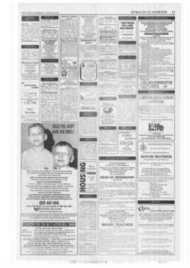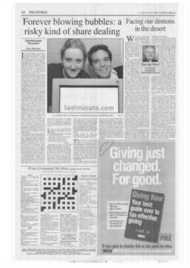Page 7, 24th March 2000
Page 7
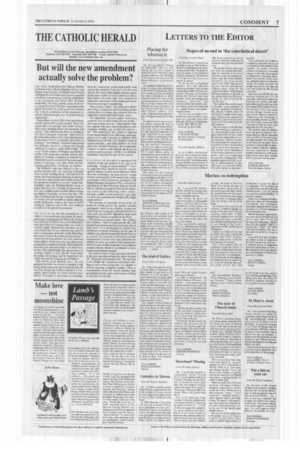
Report an error
Noticed an error on this page?If you've noticed an error in this article please click here to report it.
Tags
Share
Related articles
The Galileo Case
Science And Theology
Confusion Over Aids As A Heterosexual Disease
Science And Faith
Comic Relief — What We Must Remember Next Year
The trial of Galileo
From Dr Peter Hodgson
Sir, I have just seen the article "A Sony Spate of Apologies" by Mary Kenny in your issue of 11 February. In it she remarks: -1 cannot, personally, feel guilty either about the Inquisition or Galileo. 1 daresay some of the folk who carried out the Inquisition merely believed they were pursuing a form of adversarial trial. As for Galileo, I think it is positively good for scientists, or any other scholar, to have his ideas put through a gruelling series of tests".
This remark about Galileo is simply outrageous. Of course scientific ideas must be thoroughly tested, and scientists do that all the time. It is not, however, the business of the Church to test scientific ideas. Many of the scientists in Galileo's time were infuriated by Galileo's success in demolishing their Aristotelian physics and, unable to counter his scientific arguments, embroiled him in theological controversy by saying that his ideas were heretical. Galileo defended himself by outlining his views on the interpretation of scripture, which are now recognised as correct. He should never have been forced into this position. Scientific ideas should only be tested by scientific criteria and this can only be done by those with adequate scientific qualifications.
Yours faithfully, PETER HODGSON Oxford
blog comments powered by Disqus


